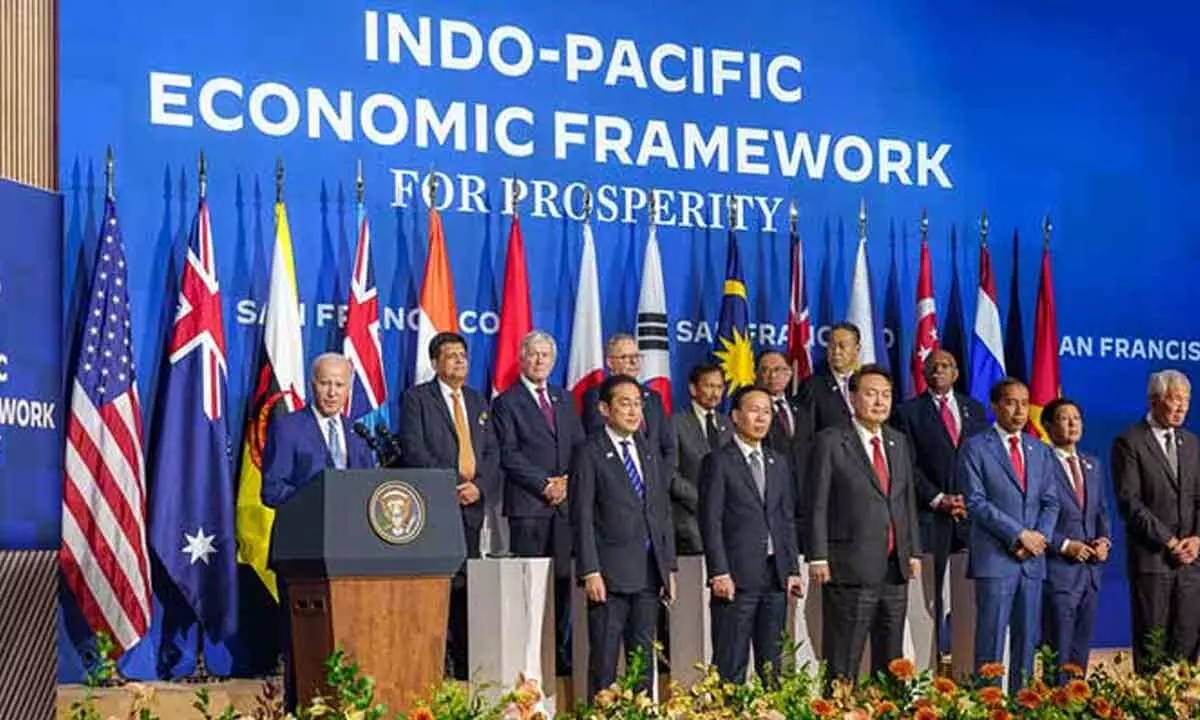Govt must boost manufacturing to gain from IPEF
image for illustrative purpose

By entering into a supply chain resilience agreement with the US and 12 other members of the Indo-Pacific Economic Framework (IPEF), India has taken a decisive step to benefit from friend-shoring that Washington is promoting to pre-empt dependence on China. Given that this will boost manufacture of critical goods, India must grab the opportunity and promote manufacturing for higher economic growth, merchandise exports, creation of jobs and trigger a virtuous cycle. Covid-19 brought a painful reminder about how the world is dependent on China—which has emerged as the world’s factory shop in the last few decades. Even before the pandemic, Washington was not happy with so much dependence on Beijing regarding the deficit in trade in goods. This resulted in the US-China trade war under President Donald Trump. There was still a deficit in trade in goods in 2022, with the US importing $382 billion from China. The figures for the first nine months of this calendar year stand at $210.2 billion.
The importance of the IPEF must be viewed against the backdrop of the geopolitical situation. On almost every important issue, the positions of the US and China are diametrically opposite. Washington has stood firmly with Tel Aviv after the unconscionable attack by Hamas which led to the murder of 1,400 people in Israel; Beijing has not even condemned Hamas’ barbarity. While US President Joe Biden has fully supported Ukraine in its defence against Russia, his Chinese counterpart Xi Jinping has thrown his weight behind Russian President Vladimir Putin. IPEF is the crystallization of friend-shoring, by way of which the US and other countries want to not just reduce dependence on China but also promote economic growth and development in friendly nations. The IPEF, which accounts for 40 per cent of global gross domestic product and about a third of global trade, includes India, Australia, the US, Japan, Fiji, Korea, New Zealand, Singapore and Thailand. All these countries have good relations with each other.
Commerce & Industry Minister Piyush Goyal has signed the IPEF Supply Chain Resilience Agreement. “India joins US and 12 other Indo-Pacific Economic Framework For Prosperity (IPEF) partners to ink the #IPEF Supply Chain Resilience Agreement, a first-of-its-kind international agreement that will fortify and strengthen global supply chains, foster adaptability, stability and sustainability,” he said in a social media post. That’s right, but for India to become a beneficiary of the pact would need it to make some changes in its economic policy. The government has to come up with a major push for the manufacturing sector as merchandise exports are predicated upon the excellence of our factories to produce goods to compete in the global market. It’s not that policy makers are unaware of the importance of manufacturing. Way back in 2011, the then UPA government at the Centre came up with the National Manufacturing Policy that was aimed to make the sector contribute up to 25 per cent of GDP by 2022. Unfortunately, that did not happen; the share of factory output in GDP is in the region of 17 per cent. Boosting industrial production requires no magic bullet; the prescriptions are known—a big dose of reforms, plus reasonableness on the part of taxmen. The government has just to walk the talk.

